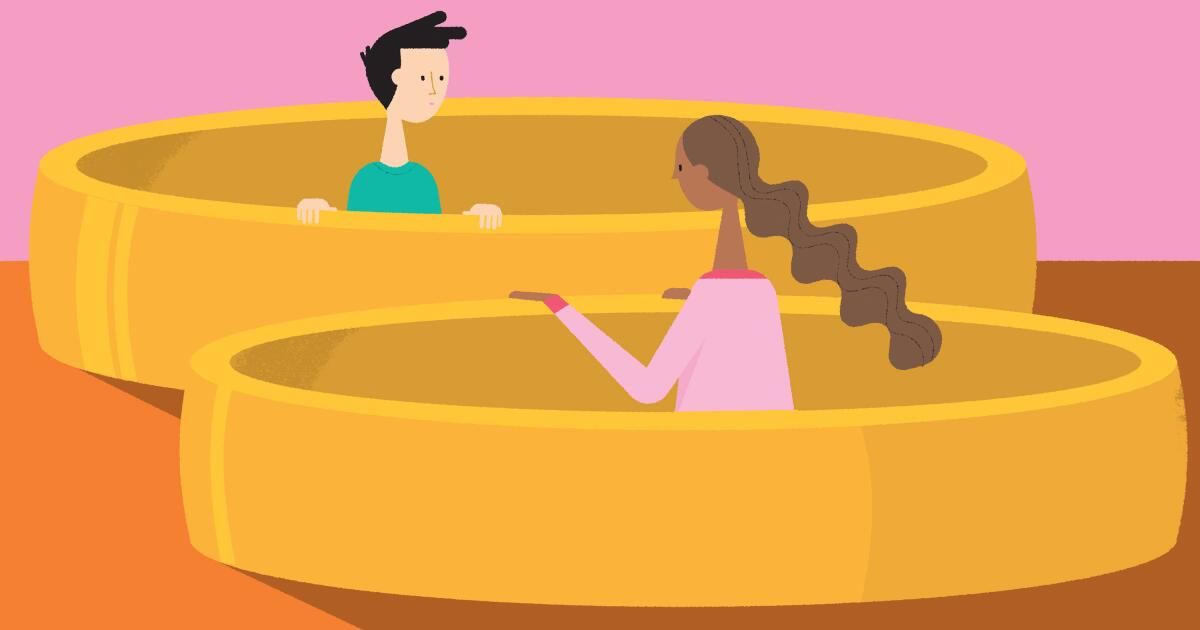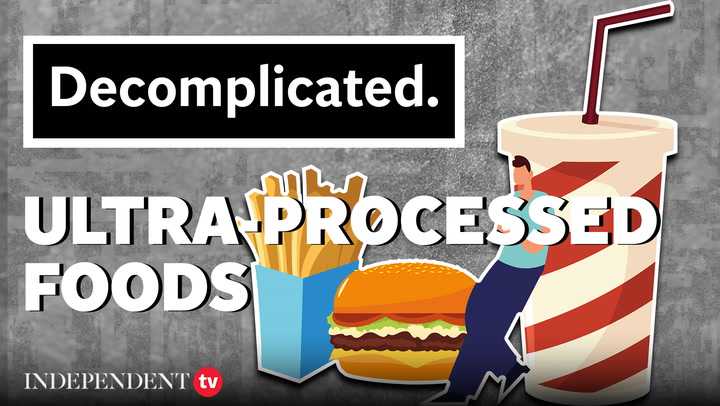Last fall I met a guy.
He had a thick mustache and, by my calculations, was at least 10 years younger than me. We sat next to each other at dinner at my social club. I had recently watched “Wild Wild Country,” a documentary series about a religious cult, and it was the only thing I wanted to talk about. It turned out that he also loved documentaries about religious cults. He was soon listing others that he needed to see. We ended up talking about movies, Buddhism, and his home state of Vermont for most of the night. He was fun, enthusiastic, friendly and intelligent. I felt lucky to have met him.
When the event ended I thought I would ask for his number. Maybe we could have a drink sometime? But I decided not to. If she had been a woman or gay I wouldn't have hesitated, but we are both in committed heterosexual relationships. Me in a fulfilling marriage with my amazing husband, him in what seemed like a happy relationship with his girlfriend. I didn't want to go out with him, I just wanted to go out again. But for two people in our situation, is it even allowed to have an independent friendship?
I've always considered myself someone who seeks out male and female friends equally, but now that I'm a 40-year-old married mother it seems that's no longer the case. Over the last decade I have become friends with straight and queer women, gay men, and non-binary people. But with some caveats, I haven't developed any new friendships with straight guys. Had I unconsciously accepted the old saying from “When Harry Met Sally” that men and women can't be friends because “the sexual part always gets in the way”?
After my encounter with the fellow fan of religious cult documentaries, I began to wonder how I got here and if I was the only married woman who felt this way. Was this evidence of my age or an instinct that spanned generations? Surely our understanding of relationships has evolved since Meg Ryan faked an orgasm at Katz's Deli.
After talking to friends and strangers, therapists and some teachers, I discovered that the answers to my questions vary wildly, depending on who you ask. And also: there's a lot more going on in platonic relationships than I ever thought.
“It's different for everyone,” said Gaea Woods, a marriage and family therapist practicing in Los Feliz. “It's up to you to decide, based on the relationship, whether it's appropriate or not.”
Despite the impact that social connection has on our well-being, research on adult friendships is scarce and even harder to find when considering friendships between men and women.
“We focus for so long on romantic relationships to the exclusion of other relationships that we simply don't have basic data,” said Jaimie Krems, a UCLA social psychologist and director of the university's new Center for Friendship Research.
The few studies that exist tend to look at male and female friends in their teens and early 20s, when researchers say opposite-sex friendships are most common. But in my search for answers, I managed to find one study 2012 published in the Journal of Social and Personal Relationship that included a survey of older adults between the ages of 30 and 40 who were asked to list the benefits and challenges of having a friend of the opposite sex.
Overall, people in the study reported more advantages than disadvantages. They valued conversation, emotional support, advice, and especially insights into how members of the other gender think, but they also recognized significant challenges. The main ones were jealousy of a romantic partner and the possibility that friendship could generate romantic feelings.
I know from my own life experience that these obstacles can be overcome. I've had several platonic male friendships over the years and they've never veered into dangerous territory. My husband also feels very good about these relationships and has his own friends. (However, from talking to friends and acquaintances, I know this is not true for everyone.) Still, my current straight friends are either friends from my youth or people I met at work. Forging new platonic relationships with heterosexual men outside of these categories is more complicated.
When I told Krems about my discomfort, she suggested it might be because I'm not sure how my friendship overtures will be received by the straight men I just met. It's less complicated with old friends, she explained, because those friendships are clearly defined as platonic.
“That relationship already has a script,” he said. “You know what it is and you're not negotiating what it could be.”
The same usually happens with work friends.
“You have this very strict and worn-out scheme that we are adult colleagues who come out and talk,” he said.
But with a new friend of a different sex, the parameters of the relationship have not yet been established. If I suggest going out for drinks, a guy who doesn't already know much about me might assume my intentions are romantic. Or worse yet, his wife or girlfriend could do it.
“You don't know what the great benefits of friendship will be; maybe you have chemistry and can be best friends, but immediately the obstacles are obvious,” Krems said.
When I conducted an informal survey of women in my community, some said they had deliberately eliminated friendships with heterosexual men from their lives.
Anja Ahkile, a doula and mother of three girls who lives in Beverlywood, said most of her romantic relationships began as friendships, including her relationship with her husband. (They were in the friend zone for a year before getting together.) Because of that, she has developed strict boundaries around her interactions with men. When she and her husband go out with another straight couple, she shakes the man's hand instead of offering him a hug, and she is always careful to greet the woman first. She has also told her husband that she is not comfortable with him developing close friendships with women.
“I could be friends with someone of the opposite sex, but what happens when my husband and I are on a rough patch and there's another guy who's calm and we bond?” she said. “There is too much potential and fertile soil for the lines to be blurred.”
Akhile says she loves her husband, but also recognizes that there are other men in the world she could have fun with. Falling in love with one of them is a risk she doesn't want to take.
“I don't want to ruin my marriage, especially when I'm generally happy in my marriage,” she said.
Like Akhile, I am in a satisfying marriage and I certainly don't want to risk messing it up. But is total abstinence from male friendship really necessary? The friendship researchers I spoke to say they don't yet have enough data to draw conclusions.
“We know that most friendships across cultures and eras have actually occurred within sex, which makes mixed-gender friendships a little less normative,” Krems said.
There is also some evidence that opposite-sex relationships become more challenging as we age. April Bleske-Rechek, a psychology professor at the University of Wisconsin-Eau Claire and lead author of the 2012 study that looked at the pros and cons of opposite-sex friendships, said there's a difference between the dynamics of having an opposite-sex friend. other sex in early adulthood, when we are more likely to seek a romantic partner, and later in life, when we are more likely to have relationships that we do not want to jeopardize.
“As people get older, they are more likely to form a relationship with someone and have children, so the nature of their friendships changes,” Bleske-Rechek said. “Women in particular tend to make mom friends and it's safer to date other couples.”
But then there's Kendra Schussel, an environmental consultant in Burbank, and one of the few women I spoke to who had developed an independent friendship with a married, straight man in her 40s.
They started chatting while picking up their kids from an after-school theater program and hit it off. The kids liked each other and the boy wasn't working at the time, so he was able to do all the extracurricular activities that his partner couldn't. They eventually discovered that they both liked obscene fart jokes and whiskey. Soon they were texting each other regularly. When Schussel started dating again after her divorce, she told him about the men she dated. Over time, Schussel also became close friends with his wife.
“She never indicated to me directly or indirectly that it was a problem for her and that she is a therapist, so I think she would have said something,” Schussel said. “I realize this is tremendously unusual and I am very grateful for this friendship.”
Schussel is proof that opposite-sex heterosexual relationships are possible, but she also has limits. She is very sensitive with her friends (they hold arms, sit close to her), but she doesn't do that with her married friends. She has also promised herself that if she thinks she might want more from a friendship with a married man, she will have to end it.
“I trust myself,” she said. “I would never want to be the person who breaks up a marriage or gets in the way of someone else's relationship.”
As for me, I've decided that, while I really liked my dinner companion from the other night, I'm not going to pursue an independent friendship with him. Like Schussel, I'm sure I can keep the platonic friendship going, but I don't want him to feel awkward asking for his number, and I certainly don't want his girlfriend to suspect I have ulterior motives, especially when I really liked her too.
Maybe if he and I had met at university or at a work event we would be great friends. But for now, I'll just enjoy seeing him (and his girlfriend) together at my local social club.
She also likes religious documentaries.












